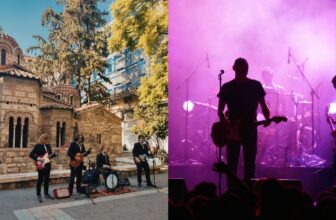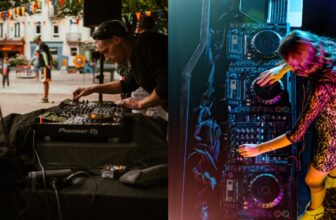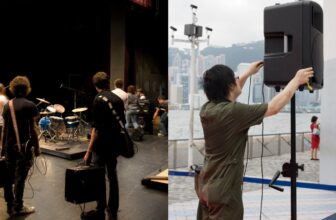How Much Do DJs Make? (2024)
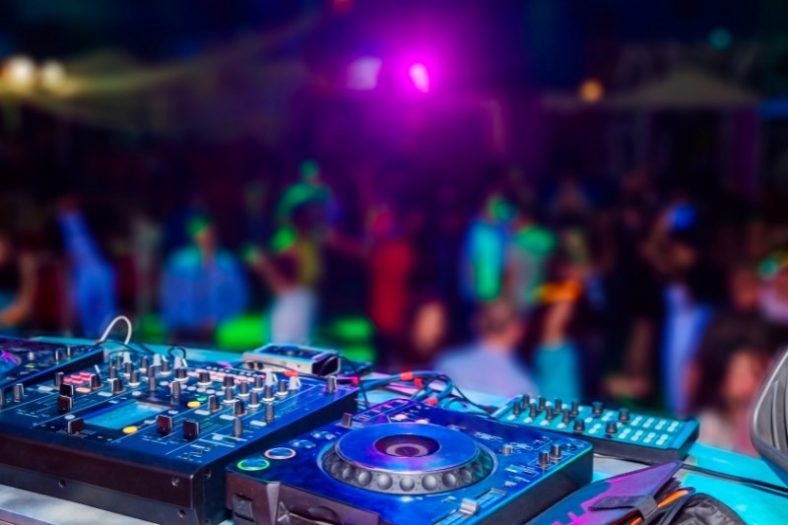
DJ earnings fluctuate according to status, function, and territory. Professional DJs make an average of $15K to $70K per year, but world-renowned DJs can make millions in a single year. Acceptable nightly fees for club DJs range from $50 to $250, but beginner DJs may accept to play for less.
What DJs make depends on how famous they are. A hardworking local DJ will struggle to make a living and will earn an average of $3K annually. A DJ who is known outside their hometown and travels to attend many gigs every year can be considered a professional and make as much as $120K per year.
International DJs who travel by airplane to play in music festivals outside their home country can make as much as $1.2 million annually. Finally, world-class headlining DJs (a group made up of but a select few) should have an annual income of at least $1.5 million.
Outside the club, professional wedding DJs make anywhere between $50K and $130K per year, while the annual wages of radio DJs can be as low as $35K.
Contents
How Much Do DJs Make? At a Glance
- DJ earnings vary widely based on factors like fame, location, and type of gigs.
- Professional DJs can earn anywhere from $15,000 to millions annually, with world-renowned DJs making the most.
- Club DJs may earn $50 to $250 per night, while wedding DJs can make $500 to $700 per event. Radio DJs typically earn $30,000 to $48,000 annually.
- Success as a DJ can be challenging due to competition, but various income streams like gigs, merchandise, sponsorships, and more are available.
- DJing can involve significant expenses, including equipment and licensing.
- DJs need to license the tracks they play to comply with copyright laws.
- Top-paid DJs include Calvin Harris, Tiesto, David Guetta, and Steve Aoki, with earnings in the tens of millions annually.
Do DJs Make the Same Everywhere?
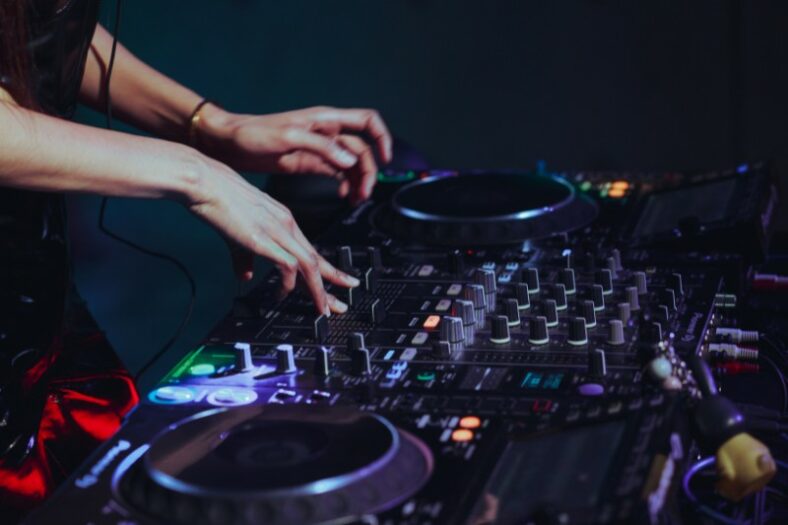
DJ earnings vary according to country, city, and time of the year. DJs who live in cities such as Miami, Berlin, or Las Vegas will find more opportunities and can ask for higher fees. On the other hand, DJs who reside in countries and cities with little club culture will probably struggle to make ends meet.
In the U.S.A., most DJs make around $13 on average. The top 10% of DJs make a minimum of $40,000 annually, while the bottom 10% have around $ 17,000 in annual wage.
In Europe, DJs are paid better. For instance, in the U.K., DJs make around $ 36,000 annually on average. This equals $18.5 hourly, significantly higher than the U.S. rates.
While there’s no official data to back this claim, it’s safe to assume DJs can make more money in the summer—due to the higher prevalence of music festivals and live events—than during the winter.
How Much Do Top DJs Earn?
The most popular DJs in the world have staggering personal fortunes. The world’s richest DJ, Calvin Harris, has a net worth of $300 million. Top club DJs make an average of $250K per show. In 2017, for instance, booking the Dutch DJ Tiësto cost promoters approximately $300K per night.
How Much Do Club DJs Make?
New DJs might make anywhere from $120 to $400 per gig, while well-known EDM DJs can command much higher fees, sometimes reaching $10,000 to $20,000 per nightclub event, owing to their ability to attract larger crowds and boost profitability.
Club DJs have the potential to earn a range of incomes, with numerous factors influencing their pay. The pay for a single club gig can vary significantly, primarily depending on the DJ’s experience and recognition.
Some clubs opt for permanent or resident DJs, offering an annual salary typically ranging from $17,000 to $77,000, depending on factors like experience and the club’s prestige. Furthermore, location plays a crucial role in determining a DJ’s earnings from club gigs; major nightlife cities, such as London, may offer higher pay rates, around $27.5 per hour, compared to smaller cities or regions with less robust club scenes.
How Much Do Wedding DJs Earn?
Earnings of wedding DJs can vary widely based on factors like location, experience, and services offered. On average, in the United States, wedding DJs can earn between $500 and $700 on average per event. The rate can go up to $ 2,000 for some professionals.
Established DJs with a strong reputation may charge higher fees, and additional services like lighting and MC duties can further increase their earnings. It’s important to note that these figures are approximate, and local rates may differ.
How Much Do Radio DJs Make?
Radio DJs typically have the option of working as freelance professionals or securing full-time roles at radio stations. On average, their salaries typically range from $30,000 to $48,000 annually.
The annual salary for professional radio DJs can vary, mainly determined by their experience in the industry. However, well-known radio DJs with substantial fan followings can earn significantly more due to their popularity and influence within the industry.
How Do DJs Make Money?
Festival, club, and private bookings are the main source of income for most professional DJs. However, the Internet gave rise to a new world of money-making opportunities for DJs, as it allows them to build their independent brand. Successful DJ brands can generate a lot of money online.
Social media allows DJs to build a loyal base of followers. Followers are important not only because they help DJs get better booking deals but also because they can be at the center of various forms of alternative income opportunities.
If a DJ is well-known, he or she can make money online by:
- Selling merchandise. Die-hard fans love to buy merchandise from their favorite DJs. Steve Aoki, for instance, is a master at selling merch and has done it all, from releasing a clothing collection to licensing a comic book.
- Finding sponsorship deals. Fame and sponsorship deals go hand in hand, and well-known DJs should get plenty of sponsorship offers in their inboxes. Sponsorship deals can range from million-dollar contracts to something as simple as getting free gear.
- Working as an influencer. DJs with a decent online following can make money by promoting products (usually related to DJing) on their social media profiles.
- Participating in masterclasses. Aspiring DJs are willing to pay to learn from their idols, meaning that well-known DJs can make money by streaming tutorials online or working with education platforms such as Skillshare or Udemy.
- Authoring podcasts. There’s a reason why it seems like every famous person in the world has a podcast now. Podcasts are a valuable way of reinforcing one’s brand and are a perfect platform for making money through sponsorships.
Finally, it’s important to mention professional DJs can also work as record producers and musicians. Creating brand-new tracks and DJing are two very different things that are often paired together. The world’s most popular DJs aren’t just famous for coming up with great mixes; they’re normally best known for working on original songs that end up topping the charts.
For DJs who also know how to produce, there are even more working opportunities to explore. Producer djs can make money by releasing original songs, ghost-producing, and making stock music.
How Hard Is It To Make It as a DJ?
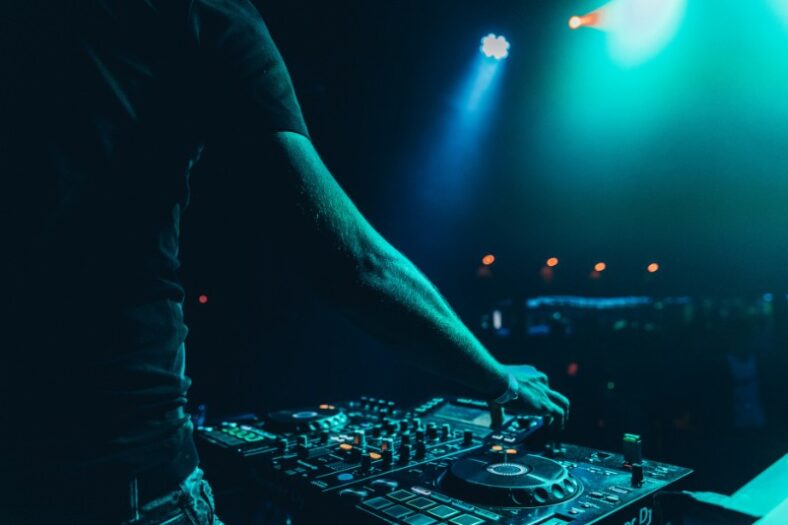
Making a name as a DJ can be extremely difficult. There are plenty of DJs out there, and opportunities are often scarce. However, DJs can survive in the business by releasing reputation-building records, working as resident DJs, or finding gigs away from the club (like weddings and corporate events).
The business side of DJing is tough, but learning how to become a DJ is easy. For this reason, many small venue owners enlist the services of amateur DJs to save money. Since it’s not very hard to qualify as an average DJ, professional DJs can be snubbed for people who don’t put as much effort into the art of DJing.
This means that working opportunities for highly qualified DJs can be hard to find. To stand out in such a tough, overcrowded business, professional DJs need to either become famous by releasing popular records or build a reputation with years of solid live performances.
Luckily, there’s more than one way of making money as a DJ.
Is It Expensive to be a DJ?
Music licensing is the most recurring cost associated with a DJ’s day-to-day activities. Other expenses include traveling and accommodation. Professional DJs can also work with a hired staff and pay a percentage of their earnings to a manager, booking agency, and/or record label.
Becoming a DJ also involves investing in equipment. To practice their skills at home, DJs should save at least a few thousand dollars to buy essential equipment. DJs need a minimum of two turntables and mixers (which can often be bought together), a set of high-quality speakers, and good headphones. Depending on the setup, DJs may also need a laptop and dj software.
Do DJs Need to License the Tracks They Play?
Yes. According to U.S. copyright law, DJs need to be licensed by a performance rights organization (such as BMI) and report which compositions they’re using in their mixes and live sets. While there may be exceptions, similar copyright laws apply in most countries.
Copyright laws are tough on DJs, but they exist to protect the rights of artists. If a DJ is exploring the work of an artist commercially, it makes sense that the artist should be rightfully compensated.
The copyright holders should get a portion of a DJ’s revenue in royalties. Performance rights organizations calculate these royalties based on the setlists divulged by DJs following each live gig.
Isn’t There an Easier Way?
Luckily, DJs can rely on blanket licenses. These make it possible for DJs to play any song they want without having to report every little tune on their setlist to a performance rights organization. The best part is that DJs don’t always need to pay for their blanket licenses, as this cost can be covered by the venue.
Exceptionally, blanket licenses don’t cover on-air performances (such as radio mixes or TV appearances).
Who are the Top-Paid DJs?
Calvin Harris
With an estimated net worth of approximately $300 million, Calvin Harris stands as one of the highest-earning professional DJs globally, making around $40 million annually. His wealth is a result of diverse income sources, including live performances, music production, and songwriting. As an internationally renowned EDM DJ, Calvin frequently tours internationally, performing at concerts and securing lucrative deals.
In 2013, Calvin Harris collaborated with the Hakkasan group in Las Vegas, where he earned a substantial $400,000 per gig. This partnership continued in the subsequent years, establishing him as a resident DJ.
Additionally, Calvin generates income through music royalties, with his hit song “We Found Love,” with Rihanna surpassing one million sales in 2011. He also engages in endorsement campaigns for various brands, commanding fees of around $4 million per campaign.
Tiesto
Similarly, Tiesto, another prominent EDM DJ with a net worth of $170 million, boasts annual earnings of $40 million from diverse income streams. A portion of his income stems from album sales and album-related opportunities, with his fourth studio album and subsequent world tour contributing $30 million in revenue. Tiesto also earns from DJ residencies, notably making approximately $250,000 per set in 2021 at Resort Worlds.
Furthermore, Tiesto has partnered with renowned brands like Reebok, Microsoft, Skoda, and 7UP for endorsement campaigns. His YouTube channel, garnering over 50 million monthly views, serves as an additional income source, further enhancing his financial success.
David Guetta
Renowned as the “grandfather of EDM,” David Guetta possesses a substantial net worth of approximately $140 million, with annual earnings ranging between $20 million to $40 million. A significant portion of his wealth can be attributed to a major record deal in 2021 when Warner Music acquired the rights to his recorded music catalog for a staggering $100 million.
David Guetta’s global presence is reinforced by his performances at concerts spanning various continents. In 2017, he earned an impressive $25 million after captivating audiences in Asia, Europe, Africa, and America, as reported by Forbes.
His far-reaching influence and popularity have made him a sought-after figure for endorsement campaigns. Esteemed brands such as Apple, Renault, HP, and Mumm have engaged him in various endorsement campaigns, further enhancing his financial success.
Steve Aoki
Steve Aoki, another one of the highest-paid DJs in the industry, boasts an estimated net worth of approximately $120 million. Notably versatile, Aoki has collaborated with artists from diverse genres, including Lil Jon, Linkin Park, the Backstreet Boys, and Fall Out Boy. His prolific work ethic is evident as he participates in around 200 shows annually, resulting in substantial income from ticket sales and various deals.
Beyond his DJing career, Steve Aoki is also a successful entrepreneur with multiple business ventures. He operates The Dim Mak Collection, a clothing line company, which adds to his income streams. Additionally, Aoki is actively engaged in the NFT (Non-Fungible Token) collector space, further diversifying his financial portfolio.
Summary
I don’t need to tell you about Calvin Harris’ $300-million bank account for you to know that the best DJs in the world get to live very comfortable lives. But while the life of a DJ outside the top 0.1% can be tough, working as a DJ can make for a viable and sustainable career as long as you work hard and make the right decisions.
Making a living as a DJ is not for the faint of heart and involves a lot of competitiveness and long nights out. To make it in such a tough business, aspiring DJs should do everything they can to build their brand, deliver memorable mixes and live performances, and gather as many connections as possible.

